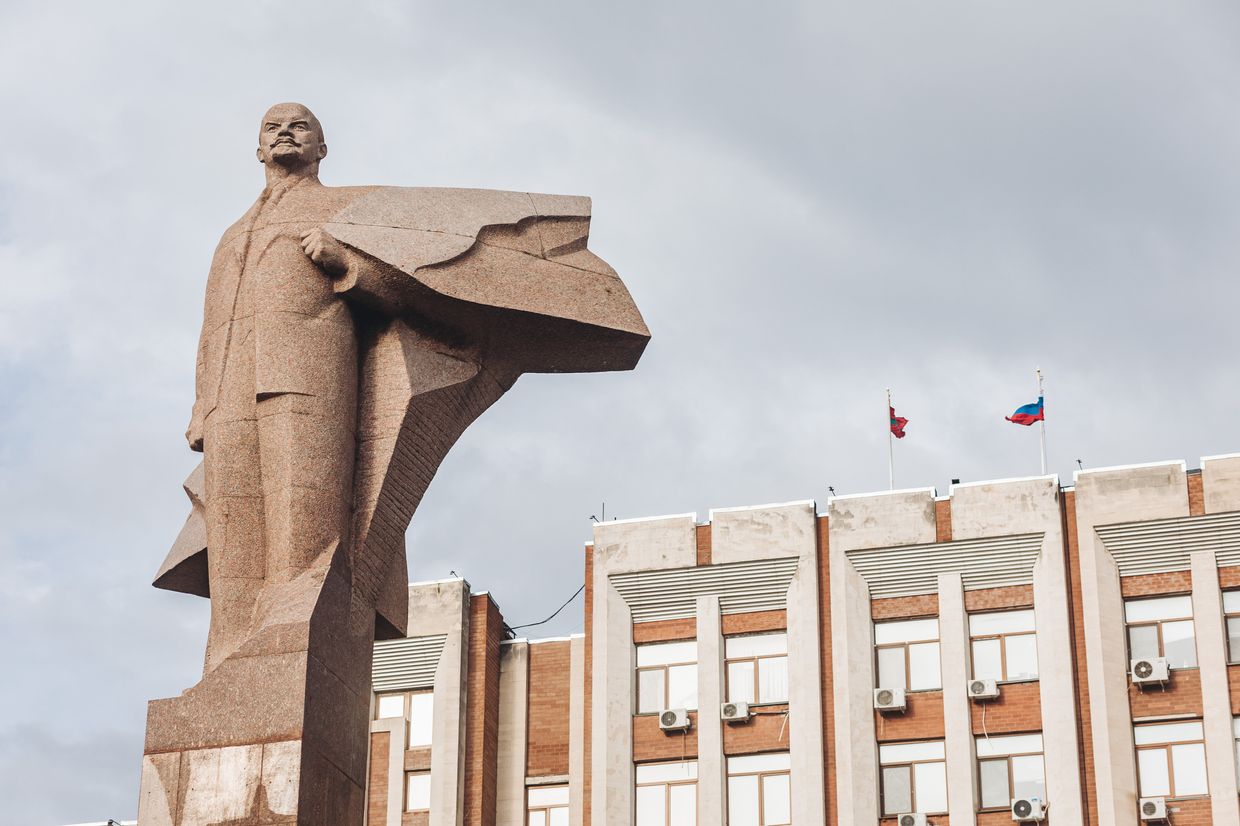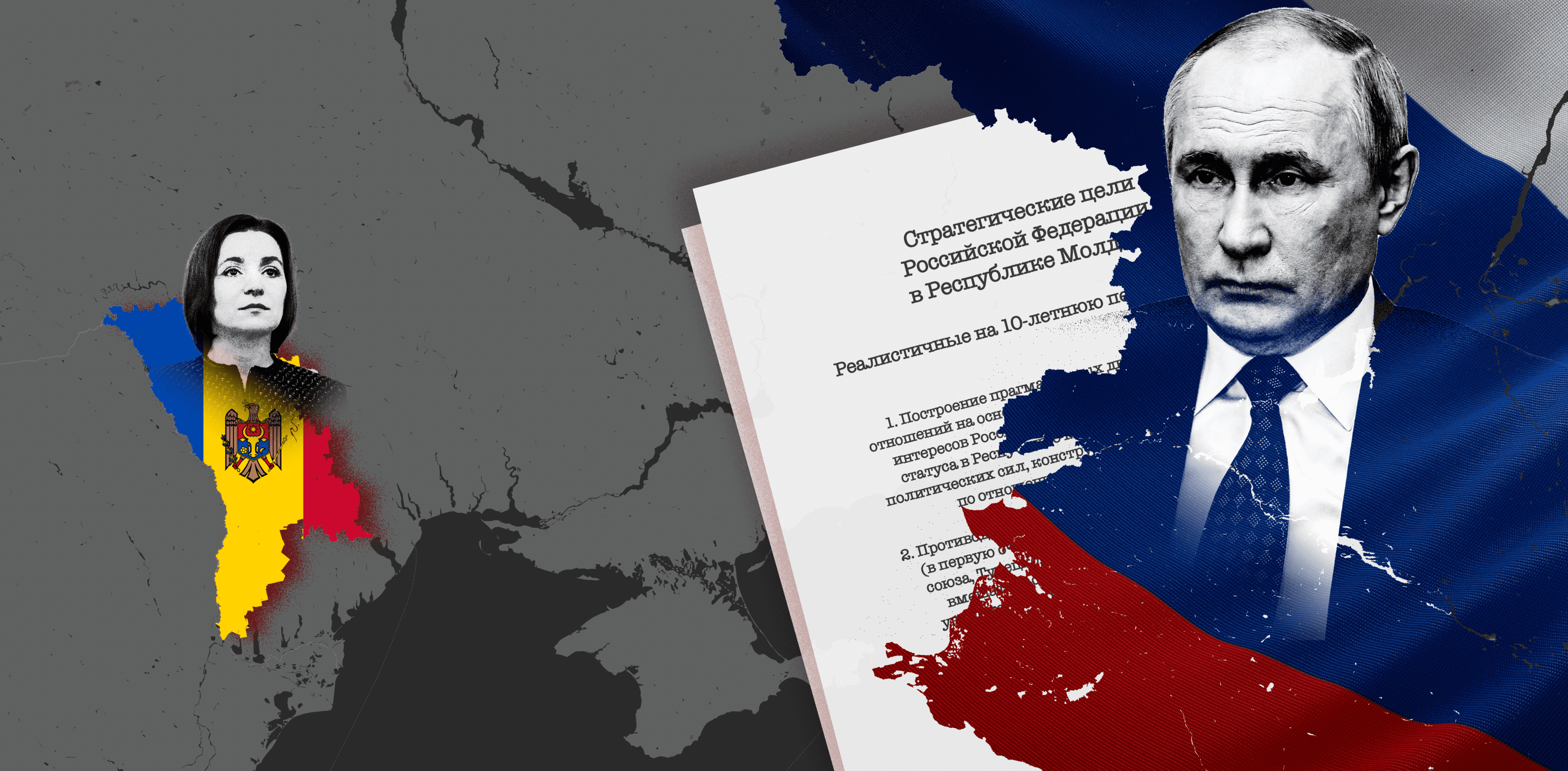How Russia attempted to steal Moldovan election, referendum, and what comes next

Two women vote during the presidential elections and a referendum on joining the European Union at a polling station in the village of Hirbovat, Moldova, on Oct. 20, 2024. (Daniel Mihailescu / AFP via Getty Images)
Although Russian interference has taken many forms in Moldova since its independence in 1991, the election and referendum results on Sunday shocked many pro-European Moldovans.
Despite opinion polls showing clear support for entrenching the desire for EU accession into the country's constitution, the success of the EU referendum came down to the wire, with the support of the large Moldovan diaspora securing a 50.38% victory margin.
The "yes" vote won by a mere 11,000 votes.
Moldovan authorities, the EU, and U.S. officials, as well as independent observers, blamed an unprecedented attack on the country's democracy from criminal networks and political groups tied to Russia.
Two weeks before the referendum and presidential election that took place on the same day, Moldovan police and the country's anti-corruption agency announced that they had evidence that around 130,000 people were to take bribes from Russian-linked forces in an attempt to overturn the referendum's results. In a press briefing at 1AM, Moldovan President Maia Sandu said that, according to her information, those who were set to disrupt the referendum were incentivized to buy up to 300,000 votes.
They had evidence that around 130,000 people were to take bribes from Russian-linked forces in an attempt to overturn the referendum's results
If true, that would represent about 20% of the 1.5 million ballots cast on Oct. 20.
Altogether, the police said fugitive oligarch Ilan Shor transferred $39 million to buy votes in September and October. Shor, who still maintains some political support despite being on the run, denies any wrongdoing.


Journalistic investigations by Ziarul de Gardă and Zona de securitate confirmed that the scheme was conducted through Telegram groups and used the Russian state-owned bank Promsvyazbank and its branches in the country's eastern Russian-influenced breakaway region of Transnistria.
"Simple mathematical calculus confirm what the authorities have said: yes, there was massive electoral fraud," said Tatiana Cojocari, a sociologist from Watchdog, one of the think tanks that commissioned polls in Moldova.
"Yes, there was massive electoral fraud."
"People who would have otherwise not cast their ballots were bought. We had a mass bribe-driven mobilization for the 'no' vote in the referendum, just like media investigations showed," she added.
Gearing up for the next round
Following the conclusion of the referendum, all eyes are now on the presidential election runoff, set for Nov. 3.
Pro-EU President Sandu will run against the former Prosecutor General Alexandr Stoianoglo, whom she dismissed for alleged corruption.
Stoianoglo scored 26% in the first round, considerably more than the 9-11% opinion polls predicted.
While Stoianoglo, like Sandu, is a double Moldovan-Romanian citizen and publicly says he supports his country's EU accession, the former prosecutor is supported by the pro-Kremlin Party of Socialists.
He also opposed the referendum, dismissing it as serving the interest of Sandu rather than the EU integration process.
Days before the election, screenshots from Telegram groups were leaked to the press saying the vote buying network controlled by fugitive oligarch Shor, who now lives in Moscow, was asked to vote for Stoianoglo.
Both Shor and Stoianoglo deny any involvement in bribery schemes.
"Criminal networks have shown that they are stronger on the technological front than state institutions," analyst Igor Boțan, from the think tank ADEPT, told Kyiv Independent.
To ensure fair elections on Nov. 3 and next summer (during parliament elections), the government would need to block bank transactions from Russia and the use of cryptocurrency in Moldova, through which Russian money is channeled.
"If they don't have the capacity to do it, they should appeal to EU partners for support," Boțan said.
According to analyst Victor Ciobanu, the election results showed a protest vote that should be a "wake-up call" for Sandu's pro-European government.
Since the war in Ukraine, inflation has risen by 40% in Moldova, while salaries and pensions have not caught up. Many blame the rising prices on the government and share a frustration with the slow anti-corruption and judiciary reforms.
"But the government can and should be changed only as a result of normal, fair, and honest elections," Ciobanu said.
"What has been happening here for several years now — in Orhei, Gagauzia, and now nationally — cannot be called elections" because of the overwhelming presence of "dirty money" and "lies," he said.
If the process of corrupting the foundations of democracy is not stopped, Ciobanu argues, in 2025, after parliamentary elections, Moldovans will end up with "a captured mafia state" once again.
"And the Kremlin will get a pro-Russian government in Moldova without a single shot (fired) and the opportunity to open a second front against Ukraine," Ciobanu added.
Political scientist Ileana Racheru agrees that if Moscow controls the government, Russia could use Chisinau airport to transport military help via Istanbul or Yerevan.
"If the pro-Russians come to power, I don't think Russia will give them money to keep Moldova afloat, to address chronic poverty. They will need money from the EU and will delay the process (eventually), both to please Russia and to take care of their own business and corruption schemes. But we don't know if Russia would be happy with the situation," Racheru said.
"They could ask for help in Ukraine," she added.
Boțan, meanwhile, said that such scenarios, where a Russia-friendly government takes over Moldova, are unpredictable and that "for Ukraine, it would not be a problem to neutralize a danger coming from Moldova if they have enough resources."
He is more concerned about the impact such a result would have on Moldova, including a "catastrophic exodus of the young."











